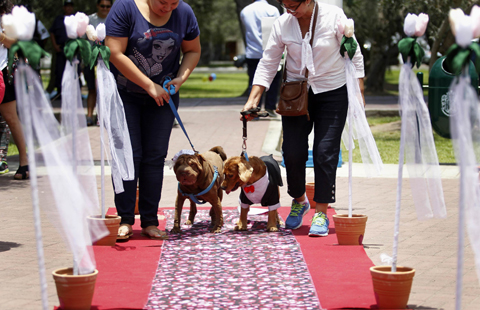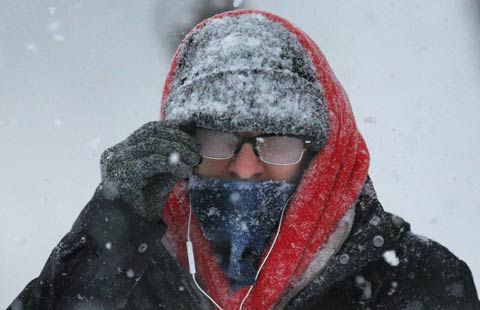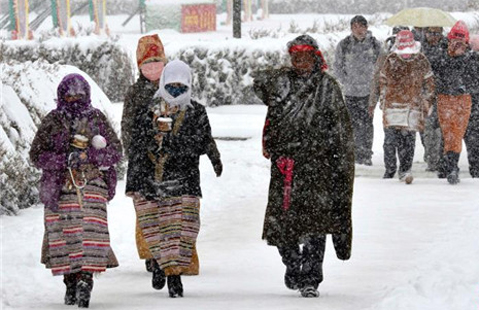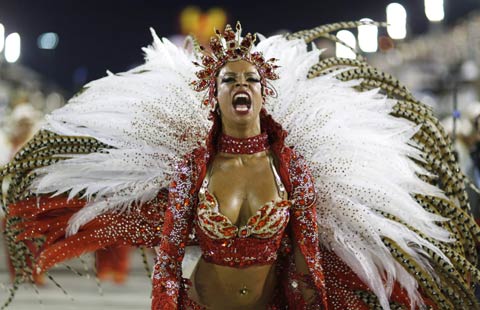Flu death toll climbs to 164 in HK
Updated: 2015-02-12 07:38
By Timothy Chui in Hong Kong(China Daily)
|
||||||||
Hong Kong's flu season death toll reached 164 as of Wednesday as more than 200 cases were listed as serious and the city's health authorities scrambled to supply vaccines and hospital beds.
The government has ordered public hospitals to take inventories of their stocks of antiviral flu drugs, with new batches not expected to be delivered until the end of April or early May. The flu season is expected to end in March.
The delay has occurred because stocks held elsewhere are already spoken for, said Leung Ting-hung, controller of the Center for Health Protection.
Leung said the amount on order will not be sufficient to inoculate the entire population, and vaccines will be supplied on a priority basis to at-risk groups such as the young, the elderly and women who are pregnant.
Authorities worldwide are seeking fresh batches of vaccines after the World Health Organization's recommended vaccine turned out to be a mismatch for this season's dominant strain.
Leung said people who have already been inoculated during the current season should not take the newer vaccine because of the risk of possible complications from mixing medications.
Several serious cases have emerged in the past few days, he said, but the rate of new cases remains stable, and the authorities will monitor the situation over the coming weeks.
The city is grappling with the more aggressive H3N2 flu strain, and infectious diseases expert Yuen Kwok-yung from the University of Hong Kong said this season's fatalities could reach 400.
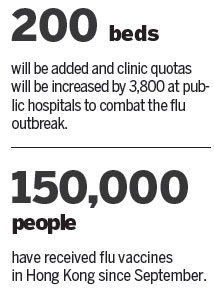
Gabriel Leung Cheuk-wai, the dean of the university's medical faculty, said the average death toll ranges from 500 to 1,000, though years where H3N2 is the dominant strain see higher mortality rates of 800 to 1,000.
The Hospital Authority has announced an urgent expansion plan after admitting that it underestimated the situation in the city's wards, with some patients forced to remain in hallways.
Public hospitals will add more than 200 beds and increase clinic quotas by 3,800 to help combat the outbreak, while staff are being offered special incentives to accept extra shifts or work over Chinese New Year.
Authorities remain vigilant for fresh clusters of cases brought on by the heavy travel expected over the New Year holiday.
The number of children hospitalized in the city is on the rise, from 2.61 children per 1,000 people before the outbreak to 3.08 now.
Leung urged parents to help their children maintain personal hygiene and avoid crowded places while calling on people with symptoms to wear protective masks.
The city's intensive care units have been swamped because of the flu outbreak, with 90 percent of the 201 ICU beds occupied and more doctors working 24-hour shifts, according to the Frontline Doctors' Union.
Union Chairman Seamus Siu Yuk-leung said doctors are complaining that the number of overnight shifts they have to work will double to 10 nights a month in the coming weeks if current infection rates continue.
He said the lack of space has occurred because a planned expansion of the city's intensive care units has been hit by long delays.
Wards reached full capacity over the weekend, with the average inpatient bed occupancy rate reaching 110 percent across the Hospital Authority's 16 hospitals. The Kowloon East Cluster and the United Christian Hospital were hardest hit with an occupancy rate of 120 percent.
A total of 150,000 people have received flu vaccines since September. Local microbiologists have floated plans to create a local vaccine production base to wean Hong Kong off overseas sources.
tim@chinadailyhk.com
(China Daily 02/12/2015 page4)
Most Viewed
Editor's Picks

|

|

|

|

|

|
Today's Top News
China to import more iron ore from Vale
Mexico makes moves to attract more Chinese tourists
Brazil, Peru and China to specify railway details
Growing up recluse in a dazzling world of Manhattan
Apple studies self-driving car: auto industry source
Second-longest railway built overseas by China rolls out
Graft buster publishes corruption cases in environmental sector
2 deadly shootings within hours in Copenhagen
US Weekly

|

|
